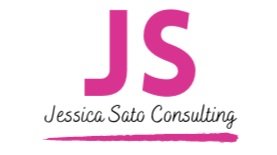3 Surprising Reasons You May Be Struggling To Get Clients
How can I get more clients?
This, more than any other question, is the one I get from prospective clients.
This is a great question because paying clients are oxygen to your business. They help you test and validate your assumptions, they give you insight into your ability to meet them where they are and help them get their desired result, and of course, they generate much needed revenue for your business.
And yet, this is often one of the biggest challenges new business owners face.
Your ideal customer is the person who immediately hears your message, knows you’re speaking to him/her, understands the value in what you’re offering, and is willing and able to pay for it.
If I were to ask you right now to tell me who your ideal client is, could you answer? Would you stumble? Hesitate? Be clear and concise?
Your answers to the above questions may invite you to do some real work here. Anything less than total clarity opens the door to confusion, and confusion in your prospects’ minds translates to no sales.
When you force prospective clients to figure out whether or not you can help them, whether you fit their needs, you’re leaving money on the table. It should be 100% clear to your prospects that you are speaking to them, that you understand their problem and desired result, and you’re the one to help them get there. Anything that’s unclear about that means you’re leaving money on the table.
So, why is it so hard?
You’re operating on assumptions rather than facts.
Business owners are notorious for doing all kinds of ideal client avatar worksheets - and they can be helpful - but these worksheets and exercises alone aren’t enough. You have to validate your assumptions. You have to talk to the very people you want to serve.
The best way I’ve found to do this is through interviews, polls, and other feedback loops. When you talk to prospects and your current client base, you can ask pointed questions about their biggest desires, the challenges they’re facing, things they’ve tried in the past that have and haven’t worked, what their problem is costing them, and why they feel like they’re struggling. In doing that, you can hear - in their words - exactly what they want and need. That allows you to formulate offers designed just for them, in language they themselves speak. This information becomes foundational to all your marketing efforts.
You’re too close to your business.
If you’re anything like me, the business you started, the clients you want to serve, and the problem you want to solve is rooted in what you, yourself, have overcome. This is a great starting point, but your clients are not you. They have different stories. Different reasons. Different needs. That’s why validating your assumptions is really important. Humans are multi-faceted, and your ideal client is more than the two-dimensional image in your mind. This is one of the reasons I think coaching is so important. It forces you to dig into your business and the assumptions you're making (often that you don’t even realize) and start separating fact from fiction.
Your niche is too big (if you have one at all).
“But I can help everyone!”
Actually, no, you can’t. If you take a step back and really analyze who you want to serve, the challenge those individuals or businesses are facing, and the results you can help them achieve, you’ll quickly realize that what you’re bringing to the table is NOT for everyone.
And that’s amazingly liberating!
When you hone in on a specific niche, you can focus 100% of your effort on those prospects. You can tailor all of your marketing efforts directly for and to them. You can develop processes, tools, and programs to help them get their specific result. You can price your services knowing the value you’ll provide at the price point that fits them best.
You can’t do that if you’re targeting everyone.
Remember, prospects only buy when they:
Feel like you understand exactly what they need and want
Trust that can help them get their desired result
Believe that you want the absolute best for them
So, what do you need to do to get more clarity here? Do you need to validate your assumptions? Do you need to take a step back and make sure you’re not creating some mythical person based on your old self? Or do you need to niche down and get more specific?
As you dig into these three areas and do an honest assessment of where you currently stand, you’ll likely identify opportunities to get back to work. There’s nothing wrong with this. I’ve been in business for over 12 years, and I’ve gone back to the drawing board more times than I can count to refresh what I believe to be true about my ideal client, redefine how I think it’s best to connect and serve, and refine my messaging. Each time I do that, I get more clarity and precision, and ultimately, it allows me to provide better value to my clients.
Ideal client work is an ongoing evolution that invites you to grow as the business owner and ultimately, serve clients to the absolute best of your ability. If this is a struggle for you or you really aren’t sure how to go about this, let’s chat. I’d love to dive into your business and see exactly where your opportunity areas are. Grab your Client Attraction Scorecard and then schedule a Client Attraction Audit and come prepared to share.
Finding right-fit clients doesn’t have to be difficult, especially when you know the reason behind the struggle.



